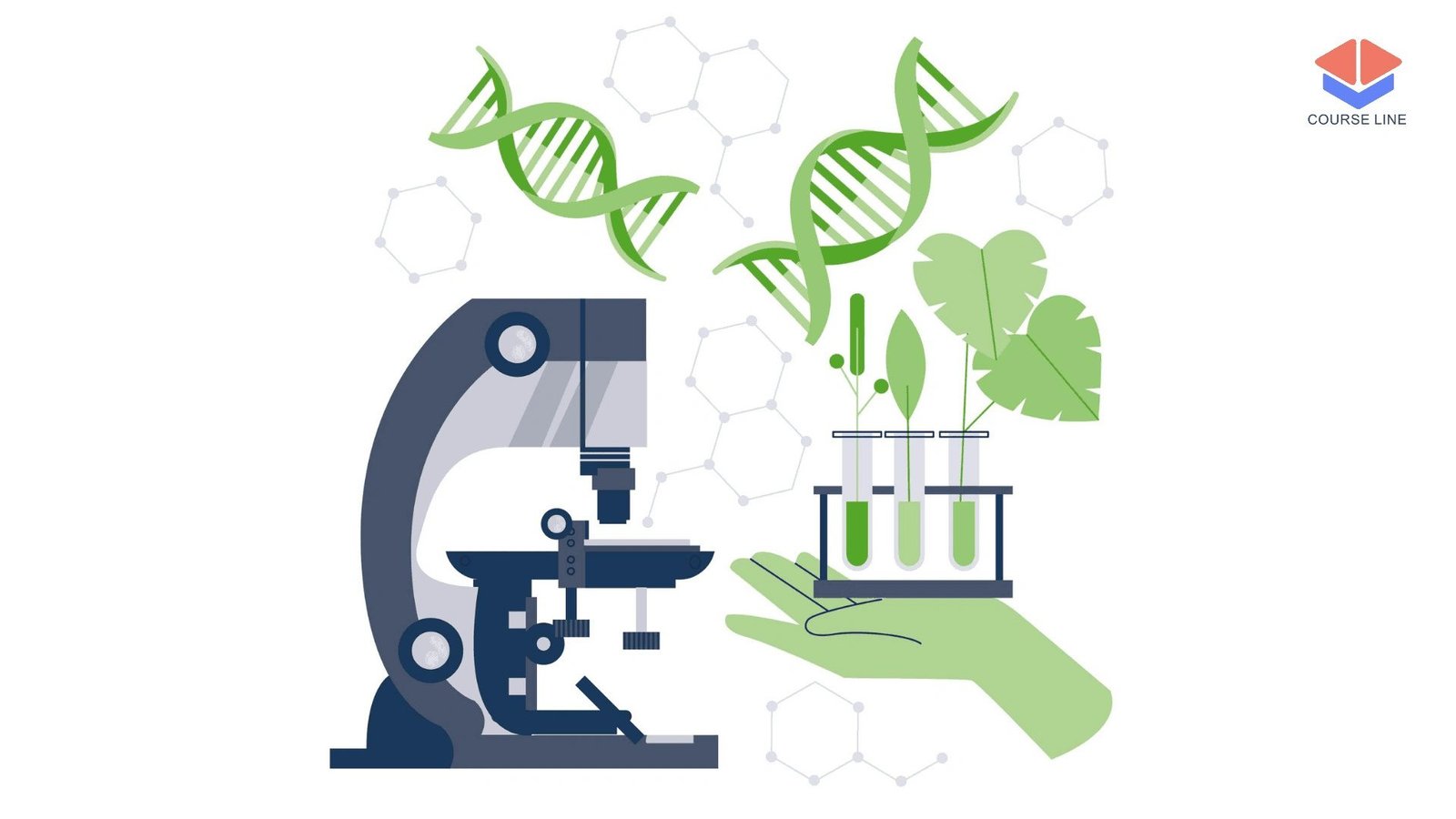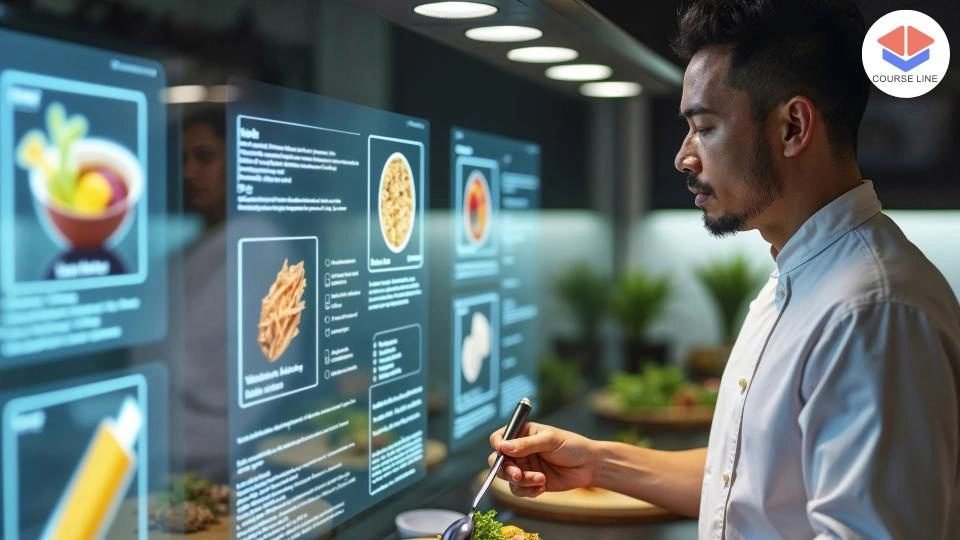Course Features
Price
Study Method
Online | Self-paced
Course Format
Reading Material - PDF, article
Duration
2 hours, 45 minutes
Qualification
No formal qualification
Certificate
At completion
Additional info
Coming soon
- Share
Overview
The Biotechnology course is designed to introduce students to the multifaceted world of biotechnology, emphasizing both its historical context and its current applications in modern science. The course begins by providing an overview of biotechnology, including its evolution and pivotal role in shaping various industries, such as healthcare, agriculture, and environmental science. Students will explore the building blocks of life, including carbohydrates, macromolecules, and the principles underlying the structure and function of biomolecules, which are crucial to understanding biotechnological advancements.
A significant focus of the course is on molecular techniques and their role in biotechnology. Students will learn about techniques that are based on molecular weight and size, crucial for applications in gene sequencing, protein analysis, and molecular diagnostics. The course also delves into cell biology, examining the structure and components of cells, as well as how cells form tissues and organs. This knowledge forms the basis for understanding biotechnology's applications in areas such as tissue engineering and regenerative medicine.
Genetics and molecular biology are central topics in the course. Students will gain a strong understanding of how genes function at both the individual and population levels, laying the groundwork for fields like genetic engineering, gene therapy, and personalized medicine. The discovery of DNA as genetic material and the role of mutagenesis in evolution are also explored, offering students insights into the genetic mechanisms that underpin much of biotechnology's potential.
By the end of the course, students will have a deep understanding of the science behind biotechnology and its applications, preparing them for advanced study or entry-level positions in biotechnological and genetic research fields.
No specific prerequisites are required, though a background in basic biology, chemistry, or other life sciences will be beneficial. Students should have a strong interest in science, a curiosity about genetics and molecular biology, and a desire to understand how biotechnology shapes the modern world. Basic computer skills are recommended for working with biotechnology software and databases used in the course.
Who is this course for?
The Biotechnology course is designed to introduce students to the multifaceted world of biotechnology, emphasizing both its historical context and its current applications in modern science. The course begins by providing an overview of biotechnology, including its evolution and pivotal role in shaping various industries, such as healthcare, agriculture, and environmental science. Students will explore the building blocks of life, including carbohydrates, macromolecules, and the principles underlying the structure and function of biomolecules, which are crucial to understanding biotechnological advancements.
A significant focus of the course is on molecular techniques and their role in biotechnology. Students will learn about techniques that are based on molecular weight and size, crucial for applications in gene sequencing, protein analysis, and molecular diagnostics. The course also delves into cell biology, examining the structure and components of cells, as well as how cells form tissues and organs. This knowledge forms the basis for understanding biotechnology's applications in areas such as tissue engineering and regenerative medicine.
Genetics and molecular biology are central topics in the course. Students will gain a strong understanding of how genes function at both the individual and population levels, laying the groundwork for fields like genetic engineering, gene therapy, and personalized medicine. The discovery of DNA as genetic material and the role of mutagenesis in evolution are also explored, offering students insights into the genetic mechanisms that underpin much of biotechnology's potential.
By the end of the course, students will have a deep understanding of the science behind biotechnology and its applications, preparing them for advanced study or entry-level positions in biotechnological and genetic research fields.
No specific prerequisites are required, though a background in basic biology, chemistry, or other life sciences will be beneficial. Students should have a strong interest in science, a curiosity about genetics and molecular biology, and a desire to understand how biotechnology shapes the modern world. Basic computer skills are recommended for working with biotechnology software and databases used in the course.
Requirements
The Biotechnology course is designed to introduce students to the multifaceted world of biotechnology, emphasizing both its historical context and its current applications in modern science. The course begins by providing an overview of biotechnology, including its evolution and pivotal role in shaping various industries, such as healthcare, agriculture, and environmental science. Students will explore the building blocks of life, including carbohydrates, macromolecules, and the principles underlying the structure and function of biomolecules, which are crucial to understanding biotechnological advancements.
A significant focus of the course is on molecular techniques and their role in biotechnology. Students will learn about techniques that are based on molecular weight and size, crucial for applications in gene sequencing, protein analysis, and molecular diagnostics. The course also delves into cell biology, examining the structure and components of cells, as well as how cells form tissues and organs. This knowledge forms the basis for understanding biotechnology's applications in areas such as tissue engineering and regenerative medicine.
Genetics and molecular biology are central topics in the course. Students will gain a strong understanding of how genes function at both the individual and population levels, laying the groundwork for fields like genetic engineering, gene therapy, and personalized medicine. The discovery of DNA as genetic material and the role of mutagenesis in evolution are also explored, offering students insights into the genetic mechanisms that underpin much of biotechnology's potential.
By the end of the course, students will have a deep understanding of the science behind biotechnology and its applications, preparing them for advanced study or entry-level positions in biotechnological and genetic research fields.
No specific prerequisites are required, though a background in basic biology, chemistry, or other life sciences will be beneficial. Students should have a strong interest in science, a curiosity about genetics and molecular biology, and a desire to understand how biotechnology shapes the modern world. Basic computer skills are recommended for working with biotechnology software and databases used in the course.
Career path
The Biotechnology course is designed to introduce students to the multifaceted world of biotechnology, emphasizing both its historical context and its current applications in modern science. The course begins by providing an overview of biotechnology, including its evolution and pivotal role in shaping various industries, such as healthcare, agriculture, and environmental science. Students will explore the building blocks of life, including carbohydrates, macromolecules, and the principles underlying the structure and function of biomolecules, which are crucial to understanding biotechnological advancements.
A significant focus of the course is on molecular techniques and their role in biotechnology. Students will learn about techniques that are based on molecular weight and size, crucial for applications in gene sequencing, protein analysis, and molecular diagnostics. The course also delves into cell biology, examining the structure and components of cells, as well as how cells form tissues and organs. This knowledge forms the basis for understanding biotechnology's applications in areas such as tissue engineering and regenerative medicine.
Genetics and molecular biology are central topics in the course. Students will gain a strong understanding of how genes function at both the individual and population levels, laying the groundwork for fields like genetic engineering, gene therapy, and personalized medicine. The discovery of DNA as genetic material and the role of mutagenesis in evolution are also explored, offering students insights into the genetic mechanisms that underpin much of biotechnology's potential.
By the end of the course, students will have a deep understanding of the science behind biotechnology and its applications, preparing them for advanced study or entry-level positions in biotechnological and genetic research fields.
No specific prerequisites are required, though a background in basic biology, chemistry, or other life sciences will be beneficial. Students should have a strong interest in science, a curiosity about genetics and molecular biology, and a desire to understand how biotechnology shapes the modern world. Basic computer skills are recommended for working with biotechnology software and databases used in the course.
-
- Introduction to Biotechnology 00:10:00
-
- Biotechnology in the Realm of History 00:10:00
- Building blocks of carbohydrates 00:10:00
- Techniques based on molecular weight and size 00:10:00
- Tissues and organs 00:10:00
- Gene at the population level 00:10:00
- Mutagenesis 00:10:00
- Premium Certificate 00:15:00

No Reviews found for this course.
Is this certificate recognized?
Yes, our premium certificate and transcript are widely recognized and accepted by embassies worldwide, particularly by the UK embassy. This adds credibility to your qualification and enhances its value for professional and academic purposes.
I am a beginner. Is this course suitable for me?
Yes, this course is designed for learners of all levels, including beginners. The content is structured to provide step-by-step guidance, ensuring that even those with no prior experience can follow along and gain valuable knowledge.
I am a professional. Is this course suitable for me?
Yes, professionals will also benefit from this course. It covers advanced concepts, practical applications, and industry insights that can help enhance existing skills and knowledge. Whether you are looking to refine your expertise or expand your qualifications, this course provides valuable learning.
Does this course have an expiry date?
No, you have lifetime access to the course. Once enrolled, you can revisit the materials at any time as long as the course remains available. Additionally, we regularly update our content to ensure it stays relevant and up to date.
How do I claim my free certificate?
I trust you’re in good health. Your free certificate can be located in the Achievement section. The option to purchase a CPD certificate is available but entirely optional, and you may choose to skip it. Please be aware that it’s crucial to click the “Complete” button to ensure the certificate is generated, as this process is entirely automated.
Does this course have assessments and assignments?
Yes, the course includes both assessments and assignments. Your final marks will be determined by a combination of 20% from assignments and 80% from assessments. These evaluations are designed to test your understanding and ensure you have grasped the key concepts effectively.
Is this course accredited?
We are a recognized course provider with CPD, UKRLP, and AOHT membership. The logos of these accreditation bodies will be featured on your premium certificate and transcript, ensuring credibility and professional recognition.
Will I receive a certificate upon completion?
Yes, you will receive a free digital certificate automatically once you complete the course. If you would like a premium CPD-accredited certificate, either in digital or physical format, you can upgrade for a small fee.
Course Features
Price
Study Method
Online | Self-paced
Course Format
Reading Material - PDF, article
Duration
2 hours, 45 minutes
Qualification
No formal qualification
Certificate
At completion
Additional info
Coming soon
- Share
AML, KYC, CDD for Financial Investigator & Business Managers
Course Line242¥4,646.70Original price was: ¥4,646.70.¥142.15Current price is: ¥142.15.Food Science and Technology Level 3 Advanced Diploma
Course Line237¥4,646.70Original price was: ¥4,646.70.¥142.15Current price is: ¥142.15.Mastering Shopify Liquid Programming: Development Essentials for Shopify Stores
Course Line237¥4,646.70Original price was: ¥4,646.70.¥142.15Current price is: ¥142.15.





